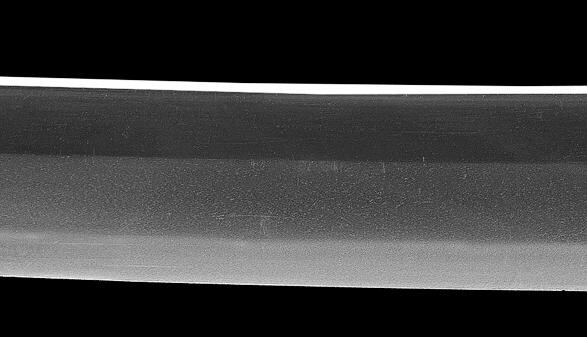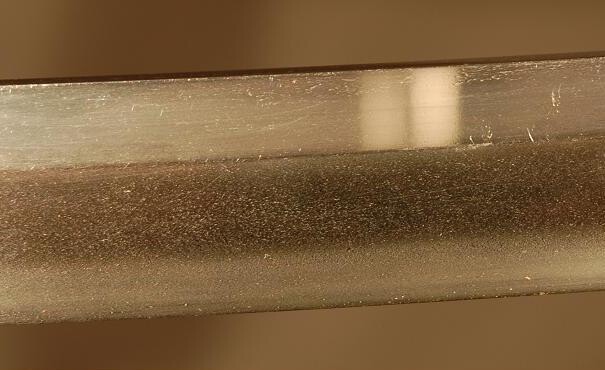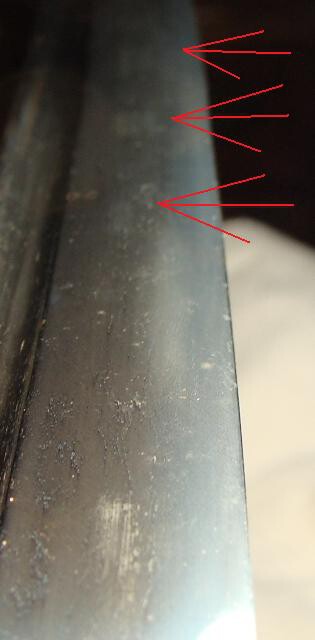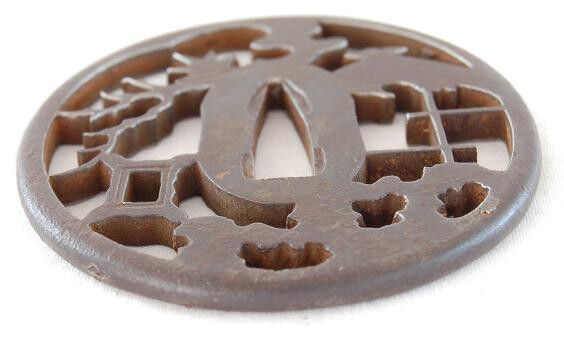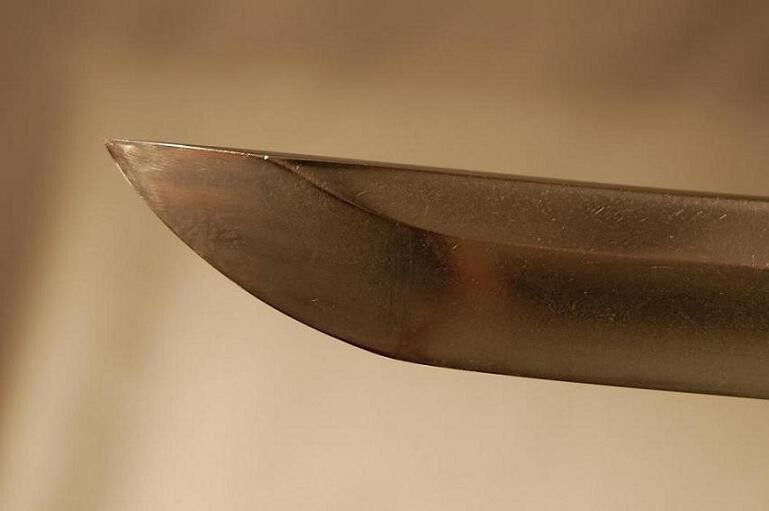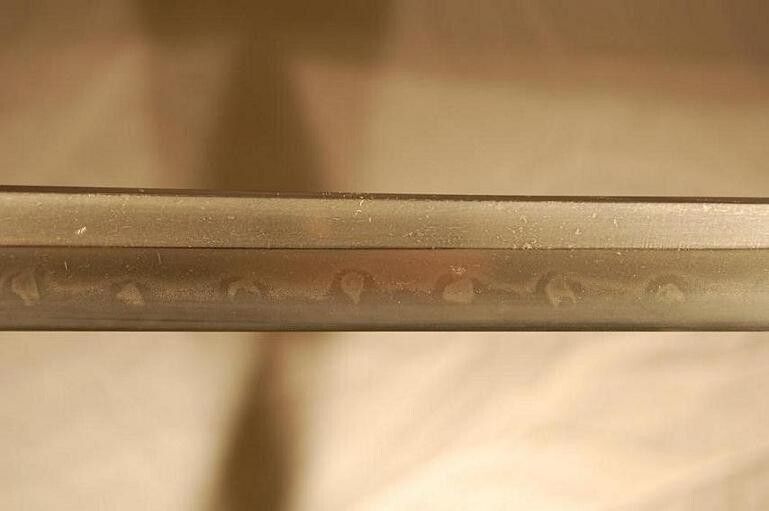
mdiddy
Dealers-
Posts
642 -
Joined
-
Last visited
-
Days Won
1
Content Type
Profiles
Forums
Events
Store
Downloads
Gallery
Everything posted by mdiddy
-
Bummer - I was looking forward to these. Are there still any existing options to cover your financial expectation or boost membership? You could raise price 50% or so and it would still be < $10/month. Advertising on SFI, WAF, Int'l boards like INTK or French Nihonto Forum, or other forums where sword collectors trawl could find add'l membership. Getting dealers w/ websites to add a link could increase membership. Finally, how about selling your service through Ebay? You could get great exposure there. Just some thoughts as I was really looking forward to this!
-
I would be interested. Would we be able to post follow-up informational questions? By informational, I mean not argumentative, provocative, trolling-type, etc...
-
Age old hamon question - does size matter?
mdiddy replied to JamesH's topic in General Nihonto Related Discussion
Here is an interesting article from Ohmura's "Military Swords of Japan" site: http://www.k3.dion.ne.jp/~j-gunto/gunto_138.htm. While it mostly speaks to Gunto, it addresses, and questions, the practicality of Japanese swords made since the end of the Sengoku jidai and aligns with some of Suishinshi Masahide's observations/thoughts. It also frowns on the art sword movement for allowing the image of swords to become detached from their original intent ("not distorted, not break and can be cut well" of the golden rule of a Japanese sword"). Worth a read. Chris - are any of the books you mention regarding WWII performance available in English? -
I would like to take on "Sword Appreciation and Identification" if its still available. Maybe give me a week or so to put it together.
-
Nice Bizen-to. I like the chu-suguha.
-
Update**added hamon pics and closeups
mdiddy replied to jason_mazzy's topic in Translation Assistance
I'd call it Sanbon-sugi. Two short peaks followed by a third larger peak in repetition. Pg. 93 and 95 in Connoisseur's. Here's a link too: http://www.nihontoantiques.com/g106.htm. And a sample below from a Seki katana. -
I found this posted a few months ago on the board: viewtopic.php?f=50&t=6837&view=previous. Similar tight hada. Do you have any pics of your Kanehide? I've one too with nice choji. Will see if I can get some pics to share.
-
Maybe a sunnobi tanto. Still kinda long. Kanji says Yoshihiro. Needs to be appraised by someone in hand for your other questions IMO.
-
Update**added hamon pics and closeups
mdiddy replied to jason_mazzy's topic in Translation Assistance
"Lil globes" at the peaks of the gunome are a tell-tell sign of Showato. -
I can't find any pics/evidence to reference, but positive I have seen this hada before on higher quality Seki work. Kanetoshi maybe?
-
Nagayama's text calls it 'Uma-no-ha' for 'horse-teeth shaped'.
-
Is 23rd Kanefusa the Showa-period Kanefusa? I think of Konuka as what I see in the photos below. FWIW, I took the 2nd pic with a 10MP Canon SLR under orange light. I prefer larger MP and then zoom in later when I crop the photo. Probably same result as nice macro function but at least I can claim to be a photog snob with SLR!
-
Hey Mark, Thanks for the add'l pics. Are the areas in the below photos tempered? Tobiyaki, yubashiri, large gunome? Matt
-
Mark Green and my new Nihonto
mdiddy replied to jason_mazzy's topic in General Nihonto Related Discussion
Good to hear you connected with Mark - he'll set you on the right path. I'm looking forward to seeing his tsuba some time. Matt -
Jon Bowhay website is online
mdiddy replied to blades87's topic in General Nihonto Related Discussion
Bravo -
Ford, Thanks very much for your input. Your opinion is highly valued and I appreciate the help. Matt
-
-
Hello, I have this tsuba that I have been studying recently. Fairly green in my tosogu studies, it looks like the style of Akasaka with a nice summer pavilion(?) theme. However, I am suspicious it may be cast. What traits should I look for to determine if a tsuba is a cast reproduction vs. authentic? Here are my observations on this particular tsuba: Heighth: 7.8 cm Width: 7.5 cm Thickness: 0.5 cm Shape: Maru Gata Rim: Maru Mimi Condition: Some loss of patina on mimi and sukashi edge. Some rust. I understand that Akasaka tsuba had a multi-layer construction, a soft inner layer of iron sandwiched between two kawagane. I see 3 layers striated by difference in rust on the inside of the rim. In my mind this would support authenticity. However, the patina is not evenly spread and there is gray metal showing, particularly along the mimi and edge of the sukashi (perhaps it was partially cleaned? ). But to my untrained eyes the iron does not necessarily look very old. I’ve provided pictures under orange/natural lighting conditions and at different angles. Any insight into how to tell authenticity vs. reproduction would be greatly appreciated. Also, this is not for commercial purposes. Thanks! Matt
-
Seriously - I had to dig my car out of 3ft of snow at BWI on Monday...without a shovel. Not for the faint of heart. Here are pictures of the sword Mark mentions. It is a stout Shinto in shikomi-zue mountings. The sword does not look to have been 'trimmed' for the fittings and is very beefy/healthy. I am surprised it fits in the saya. It is signed 'Musashi ju Ishido Sakano Korekazu'. Perhaps a rare 4th or 5th gen. Itame hada, kani-no-hasami hamon though the claws look to form jewels in many spots. Very nice.
-
Pretty normal I'd say. Smith is Kinmichi: http://home.earthlink.net/~ttstein/kinmichi.jpg.
-
WWII Japanese Sword & Nambu Pistol-History update Page 3!!
mdiddy replied to DaveM4P99's topic in Military Swords of Japan
What is the length of the sword? Also, could you post a pic or two of the blade itself, particularly the tip, somewhere along the midsection, and any sizeable nicks? Every genuine Nihonto is rare by virtue of being unique. Is this sword particularly valuable and/or can/should it be restored is a different question. We've made an educated guess on who made it, but that alone is not enough info to answer the restoration/value question and isn't even a guarantee that it is who actually made the sword. -
WWII Japanese Sword & Nambu Pistol-History update Page 3!!
mdiddy replied to DaveM4P99's topic in Military Swords of Japan
There are books you can buy but they are expensive and in Japanese. Very handy though if you decide to take up a deeper interest in Nihonto. Here are some additional links I found: 3rd generation: http://www.japanszwaard.nl/zc3.html 3rd generation: http://www.samurai-gallary.com/z001.htm 4th generation: http://www.sanmei.com/contents/media/M9 ... _PUP_E.htm -
WWII Japanese Sword & Nambu Pistol-History update Page 3!!
mdiddy replied to DaveM4P99's topic in Military Swords of Japan
You may have cleaned enough. There is a strong resemblance to 3rd generation Tegarayama Ujishige. According to Fujishiro he worked ~1780 in Harima. The whole mei would likely be 'Banshu Tegarayama Fujiwara Ujishige'. We can see the 'Gara','Yama', 'Fuji', and 'Wara' pretty clearly. I can see the beginnings of 'Uji' under 'Wara'. As well, you can slightly see the 'Te' above the 'Gara', particularly in the last photo although its pretty rust-covered. 'Shige' is most definitely there, just rust-covered. I'm assuming 'Ban' and 'Shu' are above the 'Te', though that area is heavily rust-covered and I can see no traces. My resource was Fujishiro, Shinto Hen, pg. 203. The mei in Fujishiro looked spot on for these characters. The yasurime and nakagojiri also match. The 1st and 2nd generation do not look as close from the examples I found. 4th generation Ujishige became Masashige, noted ShinShinTo smith. He signed Ujishige for awhile but his style is different, at least in his Masashige mei. I could not find a 4th generation Ujishige mei by him. Nakagojiri also differ 3rd to 4th generation. My money is on 3rd generation Ujishige. Matt -
I ran across this too: http://www.js-musashi.com/shop.cgi?sno=1010009&pk=s


